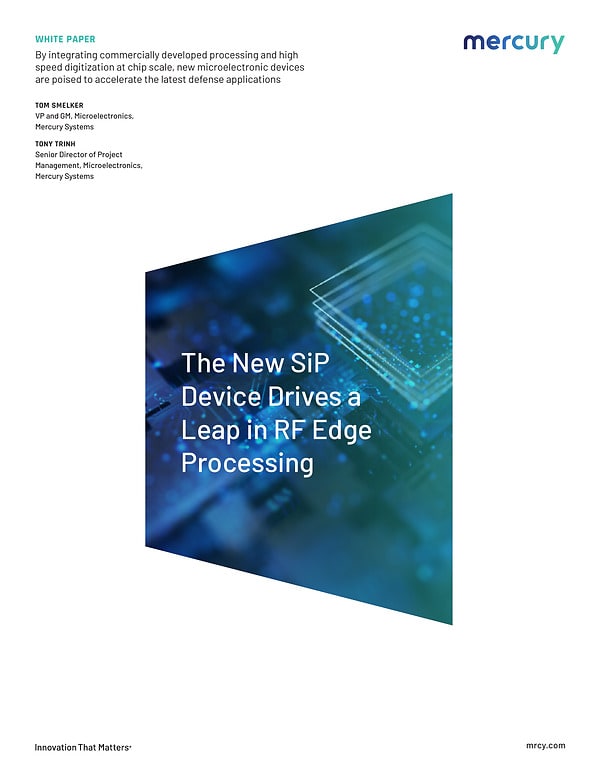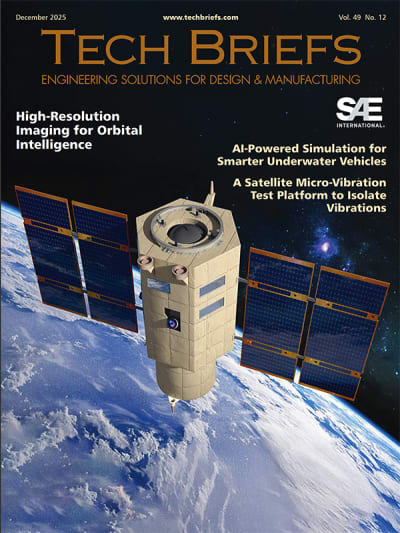
White Paper: Defense
The New SiP Device Drives a Leap in RF Edge Processing
SPONSORED BY: ![]()
The 21st century electronic battlefield is a rapidly evolving arena; this is especially true for systems operating within the RF spectrum. We face adversaries who are using stealthy techniques and deploying advanced weapons systems. Countering those techniques and weapons requires extremely low-latency responses driven by intelligent, adaptive applications. At a practical level, that means there must be a quantum leap in RF processing inserted at the tactical edge.
Don't have an account?
Overview
The white paper titled "The New SiP Device Drives a Leap in RF Edge Processing" discusses the advancements in microelectronics, particularly focusing on the RF System-in-Package (RFSiP) technology developed by Mercury Systems. This technology is designed to meet the increasing demands of the aerospace and defense sectors, particularly in the context of modern electronic warfare and the challenges posed by adversaries employing stealth techniques and advanced weapon systems.
At the core of the RFSiP is the Versal® AI Edge Adaptive Compute Acceleration Platform (ACAP) from Xilinx, which represents a new semiconductor architecture. Unlike traditional FPGAs or MPSoCs, the ACAP is a heterogeneous processor built on cutting-edge 7 nm technology, incorporating three types of compute engines: Scalar Processors, Programmable Logic, and Vector Processors. This diverse architecture allows for optimal performance across various tasks in sophisticated edge applications.
Scalar Processors, akin to traditional CPUs, are ideal for complex decision-making, while Programmable Logic provides the flexibility needed for computationally intensive algorithms. Vector Processors, optimized for advanced signal processing, are particularly suited for applications in 5G wireless systems and AI inference.
The paper also highlights the importance of low-latency responses in applications such as radar spoofing, where rapid detection and response are critical. The RFSiP technology's ability to integrate multiple chiplets on a single silicon piece allows for enhanced functionality and miniaturization, addressing the needs of the Internet of Things (IoT) and modern defense systems.
Overall, the white paper emphasizes the significance of heterogeneous integration in microelectronics design, showcasing how the RFSiP technology can accelerate defense applications and ensure mission success in challenging environments. Mercury Systems positions itself as a leader in delivering innovative technology solutions tailored to meet the pressing needs of the aerospace and defense industry.


